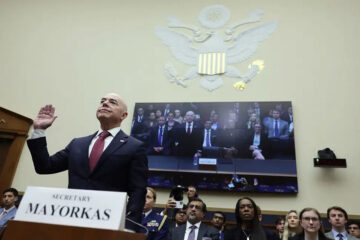Supreme Court Decision: States Can’t Ban Trump from Ballots

Unanimous Ruling
The Supreme Court handed down a unanimous ruling on Monday, asserting that states do not have the authority to bar Donald Trump from appearing on the 2024 ballots. This decision effectively squashes legal challenges that had cast uncertainty over the former president’s potential candidacy.
Victory for Trump
The ruling marks a significant victory for Trump, who faced disqualification from ballot access in states like Colorado, Illinois, and Maine. However, pending appeals had stayed these states’ decisions. Additionally, legal challenges in California, New York, and Wisconsin, questioning Trump’s eligibility for office, have been rendered moot by the SCOTUS decision.
Legal Basis
In an unsigned per curiam opinion, the court clarified that while states possess the authority to disqualify individuals from state offices, they lack constitutional power to enforce Section 3 of the 14th Amendment concerning federal offices, particularly the Presidency.
Immediate Response
Trump wasted no time in declaring victory, taking to his social-media platform, Truth Social, to proclaim the ruling as a “BIG WIN FOR AMERICA!!!”
Precedent Set
This ruling holds particular significance as it marks the first time SCOTUS has issued a decision regarding the post-Civil War era provision known as the “insurrectionist clause.” The unanimous decision glosses over ideological differences within the court, hinting at the exclusive role of Congress in disqualifying candidates for federal office.
Dissenting Opinions
While the decision was unanimous, dissenting opinions surfaced, with liberal justices and Justice Amy Coney Barrett arguing that the court’s ruling extended beyond the immediate case’s necessities. Barrett emphasized that the case primarily concerned state law and did not necessitate delving into federal legislation.
Ongoing Legal Battles
Although Trump cannot be barred from state ballots, the legal saga surrounding his conduct during the January 6 Capitol riot continues. The Department of Justice has brought four charges against him, with proceedings ongoing.
Future Proceedings
The Supreme Court is slated to hear arguments in April regarding potential criminal prosecution of Trump for election-interference charges, including those stemming from his actions on January 6.
In summary, while the SCOTUS decision clears the path for Trump’s appearance on state ballots, it leaves unresolved the broader legal ramifications of his conduct during the Capitol riot and its aftermath.












